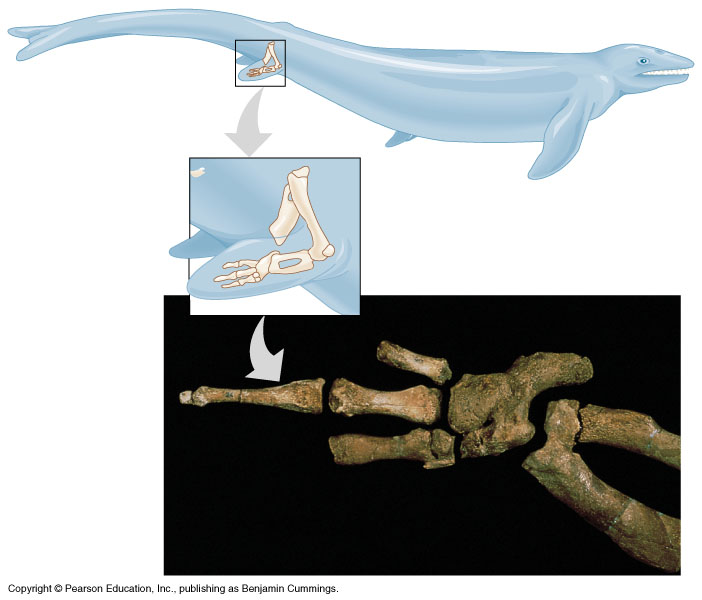
Campbell and Reece
Geographic isolation is a big
part of the punctuated equilibrium idea:
A group of creatures gets isolated
from the rest of their species.
They can evolve easily because they
are a small group.
Among the evidence for this is the fact
that fossil records often show "new"
species appearing suddenly as if fast
changes had occured.
Additionally, a geographically isolated
group might be under more severe environmental
pressure. This pressure might encourage
natural selection (more on that in a second).
In the fossil record, this looks like the following:
a parent fossil is seen, followed by a somewhat
different child species, with no transitional
fossils. This is because the transitional evolution
took place over a (relatively) small amount of
time in a (relatively) small area.

Campbell and Reece
Transitional fossil showing that whales are (formerly)
four-legged mammals that returned to the ocean.